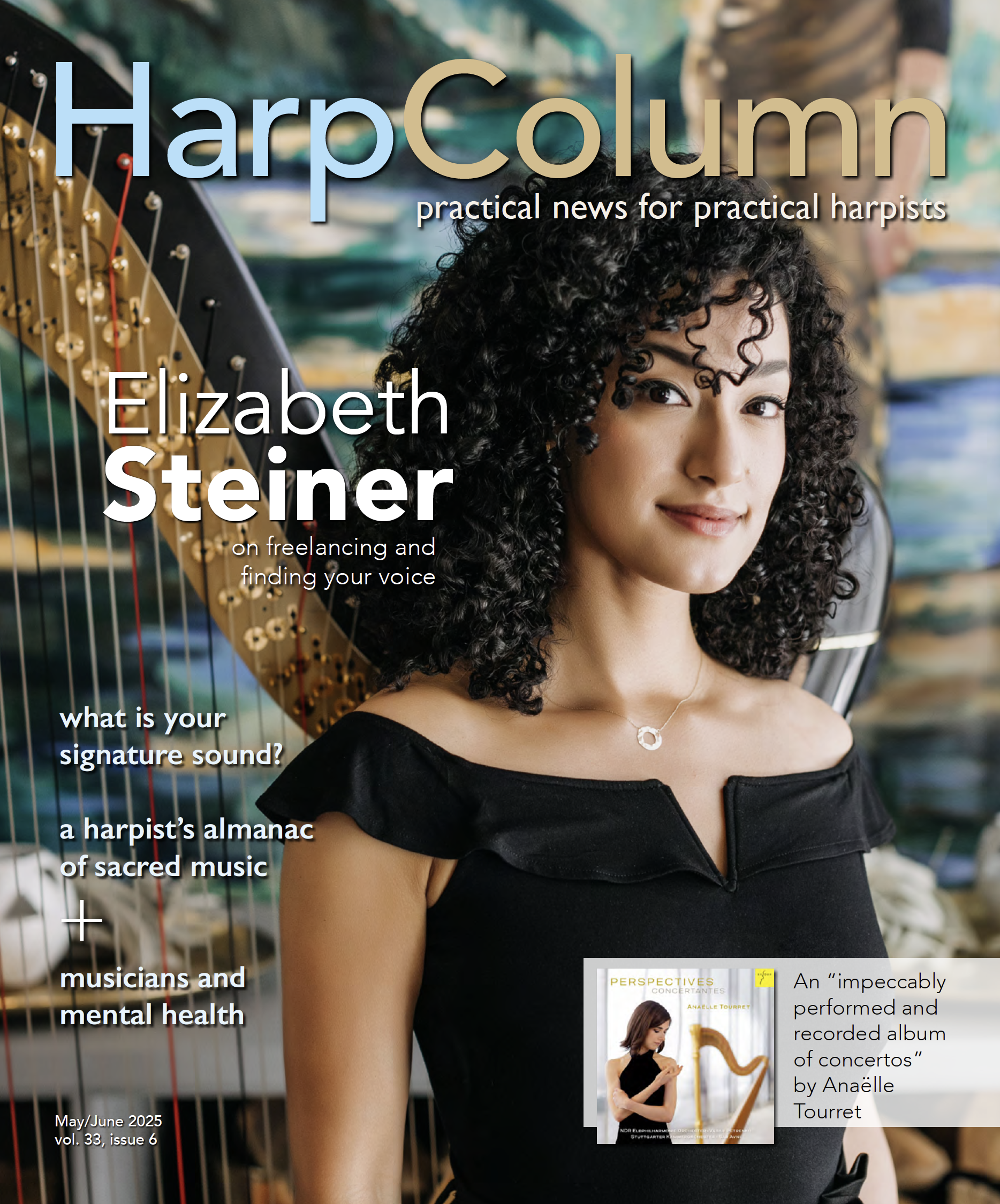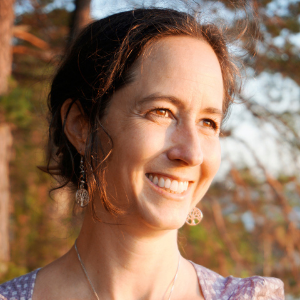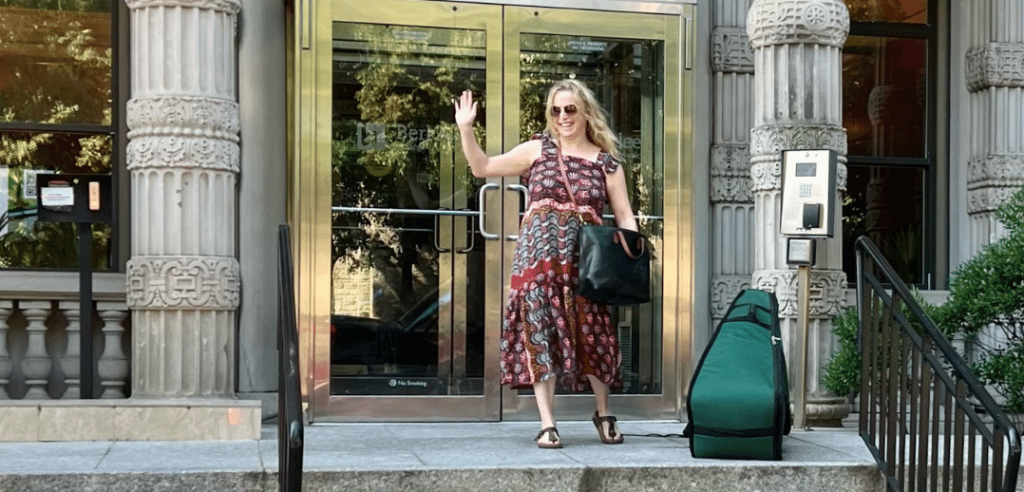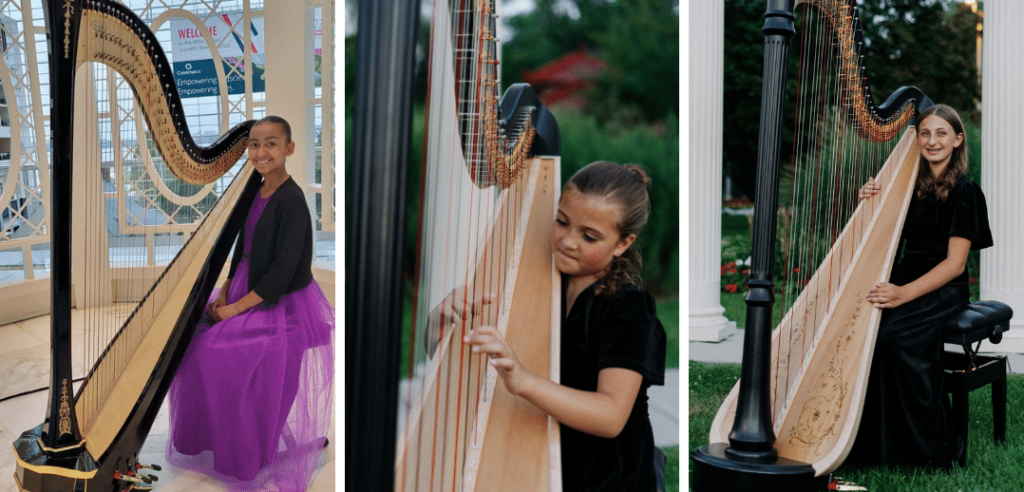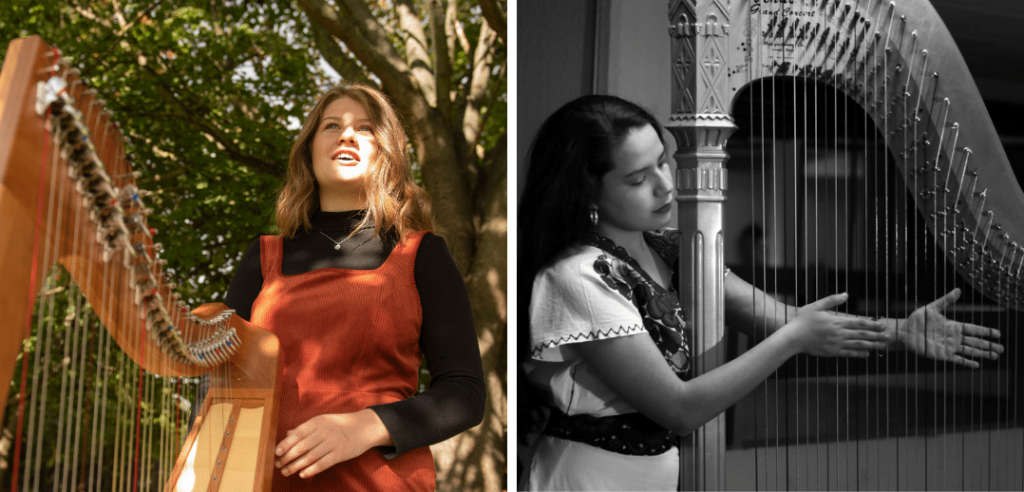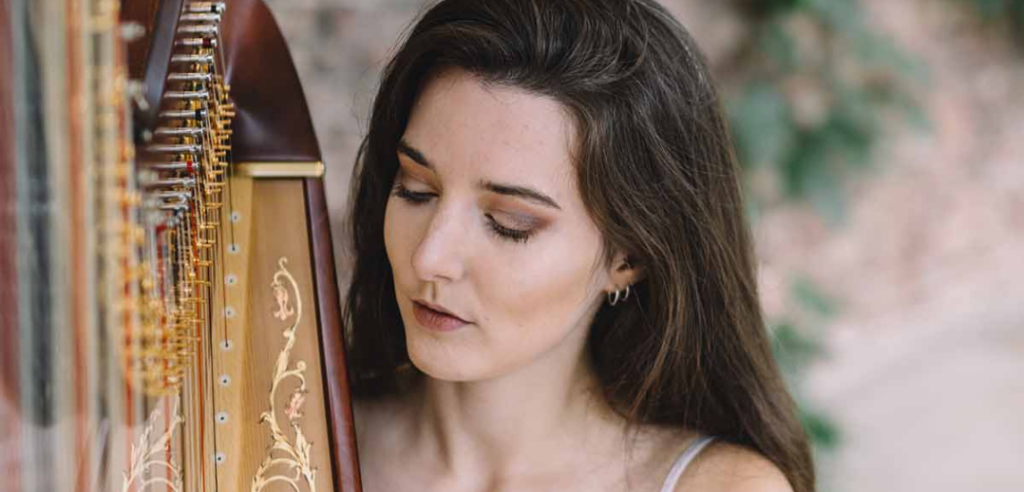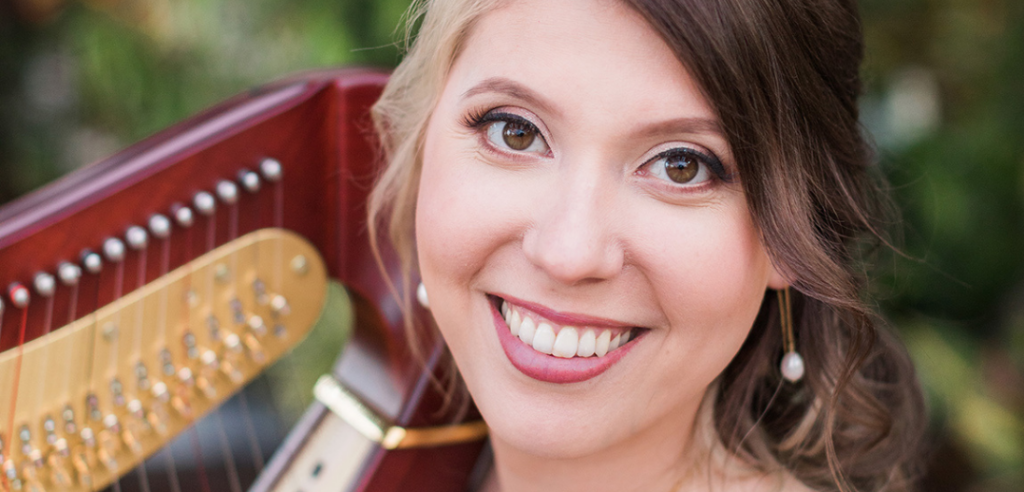In 2021 we began following nine harpists for our Practice Makes Harpist series to see how their practice affects their musical experience. In the second year of the series, we are checking in with the nine harpists we met in year one to see how their practicing has progressed over the last 12 months. In this installment, we’re catching up with Sarah Glinski.
Sarah Glinski
Age: 33 Area of work: Department of Defense
Short-term goal: Minimize performance anxiety, learn the piece “Pistache” by Bernard Andres, and consider entering the Midwest Harp Festival Competition.
Long-term goal: Play in regular ensemble or community orchestra.
When we first met Glinski, she was just starting to learn pedal harp. Two years in, she’s gained confidence and ability. Now her hobby pushes the boundaries of her comfort zone and leads her to new experiences.
Last summer Sarah wrapped up her short-term goal of performing her Suzuki book. Although mostly friends and family made up her audience, she found herself battling her nerves. “The recital was really tough. I got caught in the rabbit hole of performance anxiety and it was hard for me to get out of it while playing. It was definitely an interesting learning experience—one that certainly humbled me.”
Right after the recital she headed to the Midwest Harp Festival for her first harp ensemble experience. “Preparing all this music leading up to those two events felt very gratifying, and I loved it, but it was also challenging.” Thankfully the work paid off. Attending the festival and playing in an ensemble turned into one of Glinski’s greatest musical experiences. “It’s invigorating to meet other enthusiastic adult harpists, like summer camp but so much more meaningful.” She’s already booked her place there for this summer, eager to connect with her festival friends and to face new musical challenges.
Ensemble playing at the festival felt less nerve-racking than her solo experience, but presented its own set of challenges. “I still felt quite nervous while performing in the small group. With only two of us playing one part I worried that, if one of us got lost, the weight was entirely on the other person. It was at once reassuring but still very nerve-racking to me.”
Towards the end of the summer, Glinski once again played her Suzuki recital, this time in her uncle’s memory care home. Playing for her uncle felt more natural to Glinski. She found a place where she could worry less about mistakes and instead focus on giving the music and watching the listeners come into a calmer place. She recalls, “It meant a lot to him, and he was just so proud of me for coming. He was constantly talking about it to my cousin.”
In spite of her recent promotion at work to Commander’s Action Group Lead and Department Head and training her Brittany Spaniel to follow scents, Glinski aims for a minimum of 30 minutes of practice at least four days a week. In that time she works on techniques related to the music she’s learning and on her repertoire.
Glinski’s also finding more ways to tap into her musical creativity. It started with a Tanabata wishing ceremony where she wished for connection and community through harp music. Through the ceremony she connected with another musician, a professionally trained opera singer. Now they are experimenting to see what they can do together musically. We’ll see what new musical adventures she has to share next year. •




